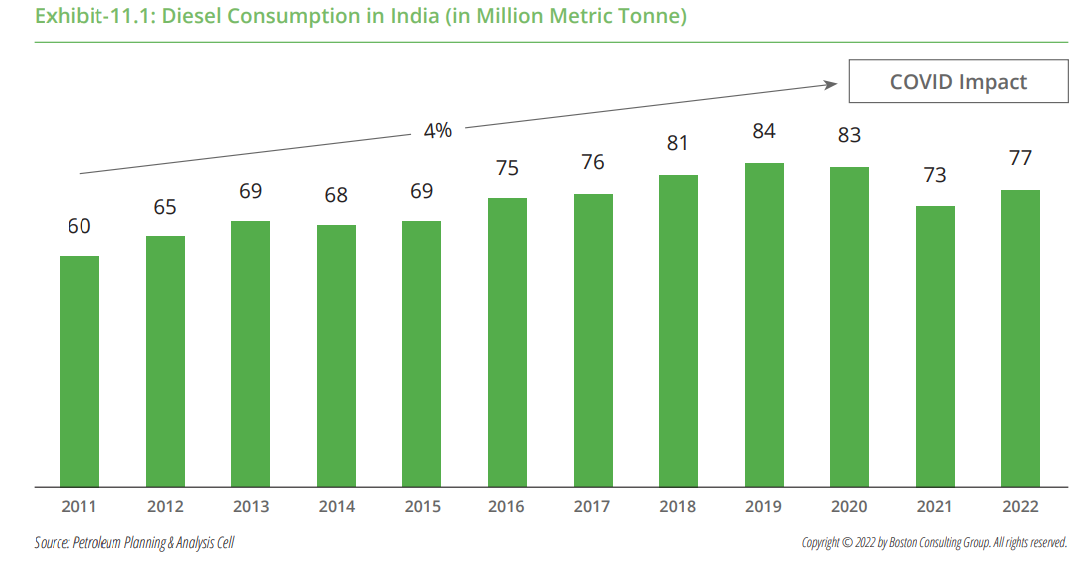7667766266
enquiry@shankarias.in
A government panel has recommended to ban all the diesel four wheelers by 2027.
A panel formed by the Ministry of Petroleum and Natural Gas has recommended a ban on the use of diesel-powered four-wheel vehicles by 2027 in cities with a population of more than 1 million.
Diesel currently accounts for about 40% of India’s petroleum products consumption.

|
Petroleum Planning & Analysis Cell (PPAC) |
|